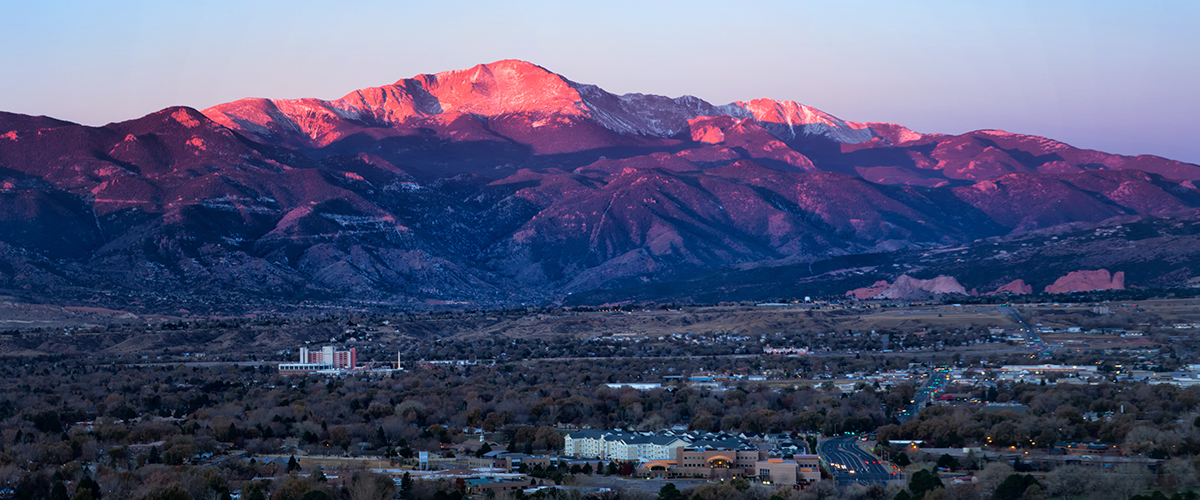[vc_row][vc_column][vc_column_text]
A new study estimates that Colorado Springs would generate over $25 million from fees and taxes if it were to allow recreational marijuana sales.
Allowing recreational marijuana sales would be a significant economic boon for Colorado Springs. A new study has found that recreational marijuana sales would generate over $25 million in revenue for the city from taxes and business fees.
Colorado Springs is one of the many municipalities and counties that banned adult use marijuana businesses after Colorado voters approved Amendment 64 to legalize marijuana in 2012. The only municipality in El Paso County selling recreational cannabis is Manitou Springs, which has two operational dispensaries.
The study — headed by Jack Strauss, the Miller Chair of applied Economics at the University of Denver’s Daniels College of Business — estimates that Colorado Springs would have pulled in $18.1 million in adult use marijuana taxes and fees in 2017, and then another $25.4 million in 2018. The study also found that allowing adult use sales would create an estimated 1,320 to 1,762 jobs for the city.
“Allowing retail marijuana establishments into the city of Colorado Springs would be a great boost to the city’s economy,” Strauss’ study concludes.
While Colorado Springs Mayor John Suthers has been strongly opposed to recreational sales occurring in his city, recently a majority of the Colorado Springs City Council said they support putting recreational marijuana sales to a citywide vote.
“We need to have a big community discussion. The majority of the voters here did support [Amendment 64],” said City Council President Richard Skorman.
Amendment 64 passed with 55 percent of Colorado voters in favor. In Colorado Springs, the measure won by a 2 percent margin.
It would take five votes by council members to put the issue on the ballot, and initiatives for this November have to be approved by August. With six votes, the city council could impose recreational sales themselves. However, the Mayor would most likely veto such a move.
“We have five or six [of the nine] Council votes,” said Skorman. “I know the mayor will oppose it. We’ll have a good community-wide discussion about it. But I don’t expect anything on the ballot until next year at the earliest.”
“If the citizens don’t want it, so be it,” Skorman added. “But we let them decide if we should regulate it and keep the tax revenue.”[/vc_column_text][/vc_column][/vc_row][vc_row][vc_column][vc_single_image image=”17394″ img_size=”1200×250″ onclick=”custom_link” img_link_target=”_blank” link=”https://www.medicalmarijuanainc.com/marijuana-market-reach-63-5-billion-2024/”][vc_column_text]A group of Colorado Springs business professionals, Citizens for Safer Neighborhoods, has publicly voiced support for allowing retail marijuana. The coalition argues that licensed retail marijuana would improve public safety.
“Banning licensed adult-use marijuana businesses only benefits the black market and organized criminal enterprises,” said Citizens for Safer Neighborhoods spokesperson Mike Elliott, a Denver-based cannabis attorney, in a press release. “Allowing licensed adult-use businesses would force sales to occur in licensed, regulated, and taxed facilities that are secure, accountable, check IDs, and ensure consumer safety through labeling, child-resistant packaging, and testing.”
“Let’s take the money away from criminals in the black market, and invest the new tax revenue in the police, parks, potholes, and stormwater,” he added.
Colorado Springs does have an active medical marijuana market, with 356 licensed companies. Strauss’ study suggests that Colorado Springs, the second largest city in Colorado, would double its share of the state’s cannabis market to 14 percent were it to also allow recreational sales.
“While Colorado Springs allows only licensed medical marijuana establishments, neighboring communities that allow licensed adult use establishments have reaped the tax benefits, including Manitou Springs, Pueblo, Denver, and Aurora,” a press release announcing the study’s findings stated.
Since Colorado’s recreational marijuana sales began in 2014, the state has generated more than $500 million in total tax revenue.
Keep up with the growing legal cannabis industry by regularly visiting our news feed.[/vc_column_text][/vc_column][/vc_row]






